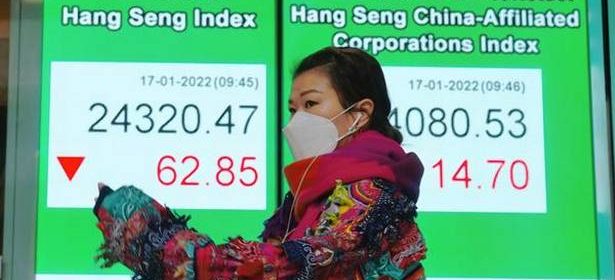China’s economy grows 8.1% to $18 tn

Fastest expansion since 2011 was driven by exports, consumption; slump in birth rate clouds outlook
China’s economy grew 8.1% in 2021 and reached the $18 trillion mark, although slowing growth in the last quarter and the lowest birth rate since 1949 emerged as concerns for policymakers.
Last year’s expansion was the fastest since 2011 and marked a strong recovery after growth plummeted to a 44-year-low of 2.2% in 2020 as the country dealt with the COVID-19 outbreak in Wuhan and months of lockdowns.
The rebound was driven by a strong trade performance with 30% growth in imports and exports as well as recovery in domestic retail sales. Exports contributed to 20.9% of growth while consumption accounted for 65.4%, data released by the National Bureau of Statistics (NBS) on Monday show.
Retail sales climbed 12.5% while fixed asset assessment rose 4.9%. However, overall growth slowed in the last quarter to 4%, from 4.9% in the third quarter.
A key reason for the slowdown was a sharp decline in real estate investment, which slid by close to 14% in December from the previous year, coinciding with curbs on the property market and debt troubles at several major real estate firms in the wake of government moves to put a stop to debt-fuelled expansion of the sector.
Heading into the country’s new year, China, which avoided a major second wave with its strict ‘zero-COVID’ approach that enabled a domestic recovery but came at the cost of continued international isolation, is dealing with the spread of new clusters and the more transmissible Omicron variant. This has led to fresh lockdowns in several cities and could be a major concern for growth in 2022.
Alarming drop
Another significant — and longer-term — concern from Monday’s data was an alarming drop in China’s birth rate with the national growth rate at 0.34 per thousand, meaning the birth rate was only slightly higher than the national death rate, despite moves to relax family planning restrictions by allowing a ‘three child policy’.
The NBS said 10.6 million babies were born last year, down from 12 million in 2020 and the lowest number since the founding of the People’s Republic of China in 1949 — lower even that the worst years of the famine of the early 1960s during Mao’s‘Great Leap Forward’.
“The most shocking part of the data released today is that the natural growth of the population has dropped…[for] the first time below 1.0 since data become available,” the South China Morning Post quoted economist Zhang Zhiwei as saying. “The demographic challenge is well known, but the speed of population ageing is clearly faster than expected.”
Source: Read Full Article
